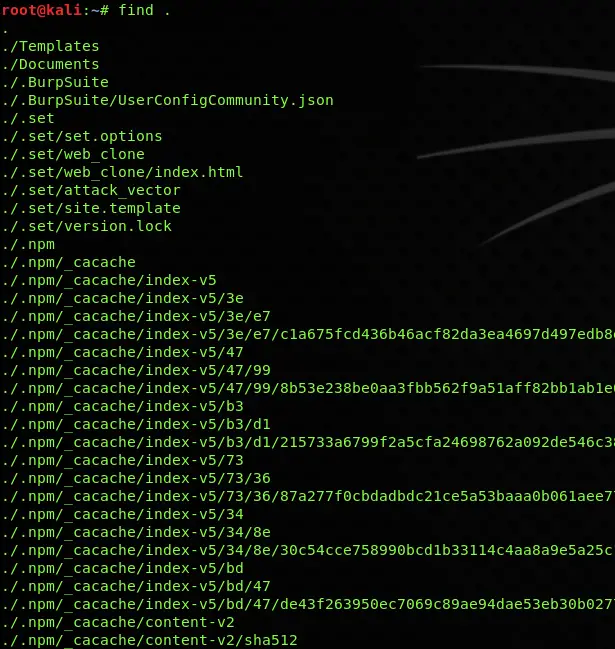
- LINUX FIND FILE NAME CONTAINING STRING HOW TO
- LINUX FIND FILE NAME CONTAINING STRING FULL
- LINUX FIND FILE NAME CONTAINING STRING CODE
Use find command as follows to delete the file if the file has inode number 4063242: $ find. The -i option to ls displays the index number (inode) of each file: ls -li Any arguments after the - are treated as filenames and arguments. Tip #4: Try a - at the beginning of the filenameĪ - signals the end of options and disables further option processing by shell. at the beginning of the filename forces rm not to interpret – as option to the rm command. The syntax is as follows to delete a file called ‘-file’: $ rm -v. You can always insert a backslash () before the special character in your filename: $ cp "my resume.doc" /secure/location/ $ cp 'my mp3 file.mp3' /backup/disk/ Tip #2: Try a backslash

LINUX FIND FILE NAME CONTAINING STRING CODE
Next, sed removes the file name, leaving just the directory name. If you need a list of filenames that all have a certain extension, prefix, or any common string in the middle, use glob instead of writing code to scan the. You can also try single quotes as follows: $ rm -v 'a long file name here' -type f -name f sed -r s/ /+ sort uniq The above finds all files below the current directory (.) that are regular files ( -type f) and have f somewhere in their name ( -name f ). The double quotes preserve the value of all characters enclosed, except for the dollar sign, the backticks and the backslash. The quotes also prevent the many special characters interpreted by your shell, for example: $ rm -v ">file" The following command is required to copy or delete files with spaces in their name, for example: $ cp "my resume.doc" /secure/location/ The rm command failed to delete the file due to strange character in filename. In this example, I am trying to delete a file named ‘>file’: If you try to delete or move/copy such files you may end up with errors. Your default bash shell considers many of these special characters (also known as meta-characters) as commands. In this quick tip I am going to show you to delete or copy files with names that contain strange characters on Linux. Users/darren/Desktop/test/test 1 level/test 2 level/article 3.In Linux or Unix-like system you may come across file names with special characters such as: Users/darren/Desktop/test/test 1 level/article 2.rtf LOCATE(), Return the position of the first occurrence of substring.

If I run this I get the following output: /Users/darren/Desktop/test/article 1.rtf BIN(), Return a string containing binary representation of a number.
LINUX FIND FILE NAME CONTAINING STRING FULL
If you want to print out the full path for the file you can replace print(file) with: print(os.path.join(path, file)) In my case, it prints the following: article 1.rtf i to ignore the case r for a recursive search l to only print the names of the file. You can tell the command to search in subdirectories, ignore the case, and more, using specific parameters. We will then check to see if that file's name starts with art and if it does we will print out the file name. It returns all the lines of a file that contain a certain string by default, and the command is also case-sensitive. In each directory we loop through each file.

os.walk will allow us to go through all the subdirectories as well. The code is very similar, but now we use os.walk instead of os.listdir. for path, currentDirectory, files in os.walk("/Users/darren/Desktop/test"): In this section we will look at how we can do this recursively, meaning, listing all files in the given directory and all of its subdirectories where the file starts with a given string/prefix. If the standard input is searched, the string (standard input) is written. Path- names are listed once per file searched. In the first section we looked at how we can list all files in a given directory with a given string/prefix. L, -files-without-match Only the names of files not containing selected lines are written to standard output. In my case, the following prints out: article 1.rtf Find files recursively On each iteration it will check to see if the filename starts with art, if it does, it will print it out. The above code will loop through all the files in my test directory.

To loop through the provided directory, and not subdirectories we can use the following code: for file in os.listdir("/Users/darren/Desktop/test"):
LINUX FIND FILE NAME CONTAINING STRING HOW TO
In this tutorial I will show you how to list all files in a directory where those files start with a given string/prefix.


 0 kommentar(er)
0 kommentar(er)
